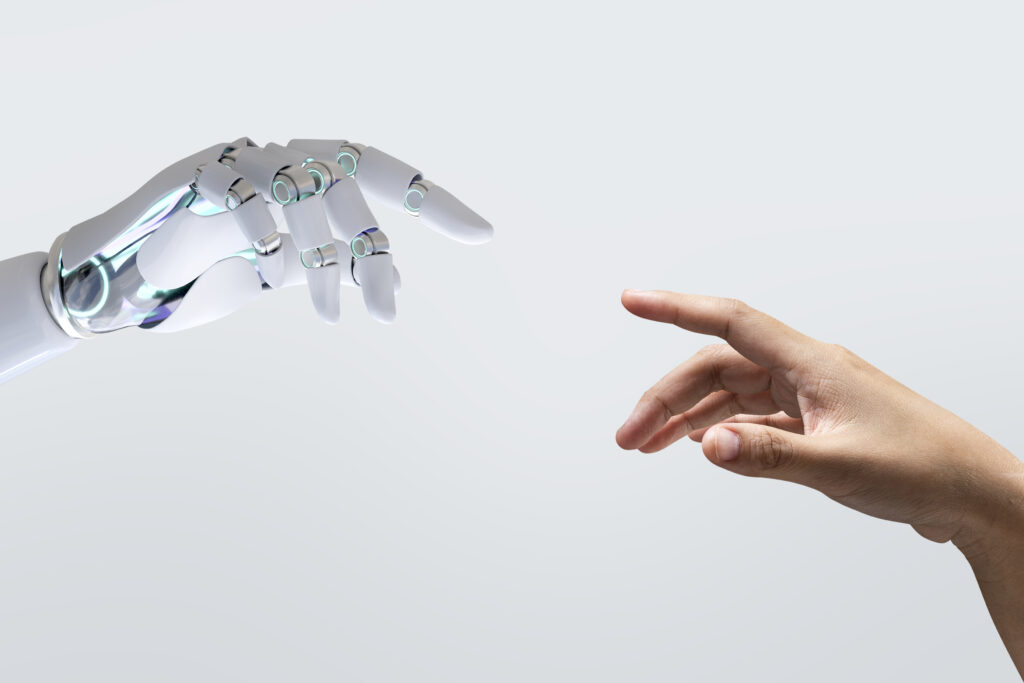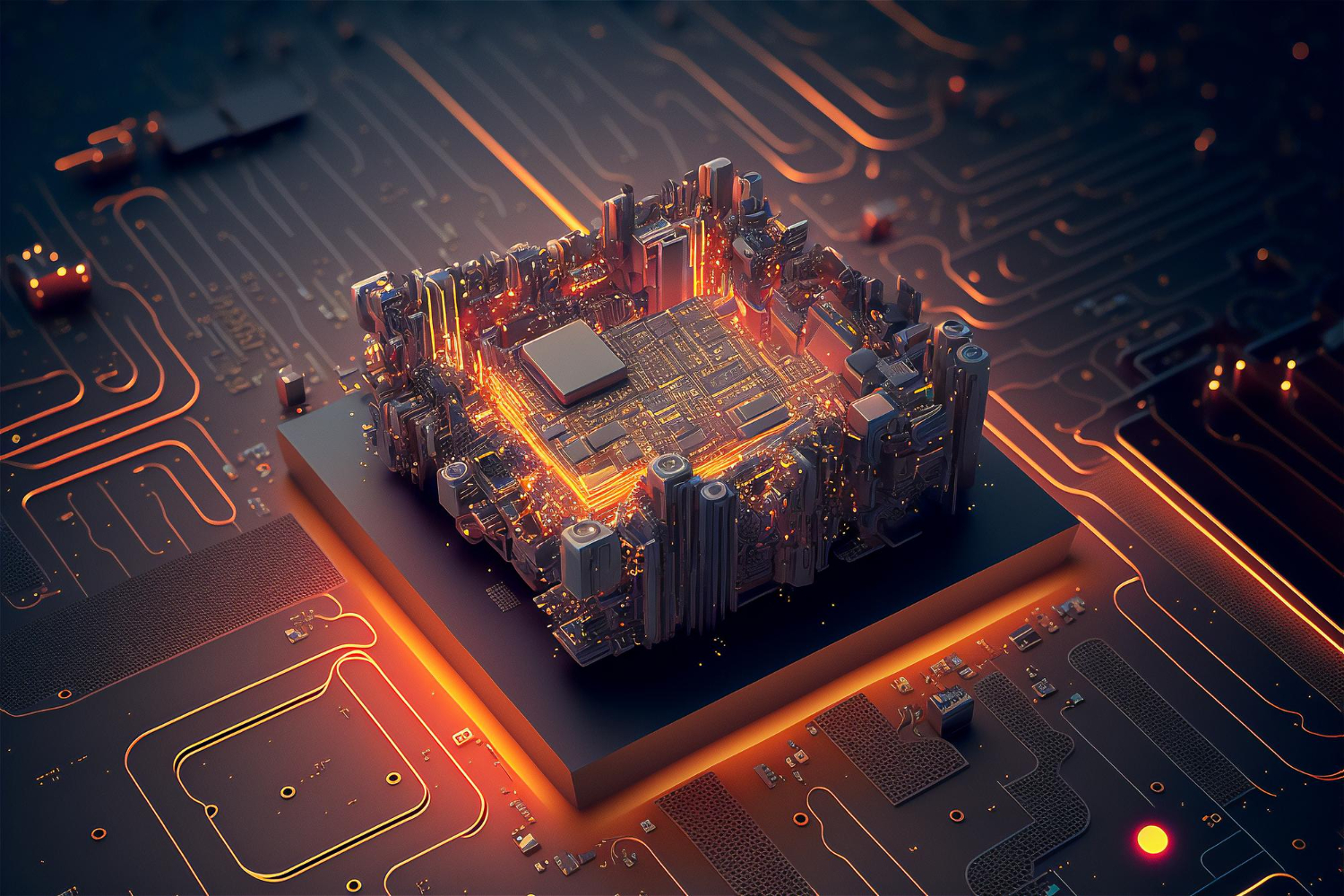In the fast-paced world of technology, innovations are constantly reshaping industries and transforming the way we live and work. Over the next decade, several game-changing technologies are poised to revolutionize various sectors, driving unprecedented advancements and opening up new possibilities. In this article, we will delve into some of these transformative technologies and explore their potential impact on different industries.
Table of Contents
1. Introduction
The rapid evolution of technology has become a driving force behind innovation, with advancements in various fields paving the way for groundbreaking solutions. Over the next decade, several technologies are expected to disrupt industries and reshape our world. Let’s explore some of these game-changing technologies and their potential to revolutionize different sectors.

2. Artificial Intelligence (AI)
Artificial Intelligence, or AI, is a transformative technology that enables machines to mimic human intelligence and perform complex tasks with minimal human intervention. AI has the potential to revolutionize industries such as healthcare, finance, transportation, and manufacturing. From personalized medical treatments to autonomous vehicles, AI-driven solutions are set to enhance efficiency, improve decision-making, and create new opportunities across diverse sectors.
3. Internet of Things (IoT)
The Internet of Things (IoT) refers to the network of interconnected devices that communicate and share data with each other. IoT has the potential to revolutionize industries by enabling seamless connectivity and automation. With IoT, smart homes, smart cities, and industrial automation systems can become a reality, improving efficiency, reducing costs, and enhancing quality of life.
4. Blockchain Technology
Blockchain technology is a decentralized and secure system that enables transparent and tamper-proof transactions. It has gained prominence primarily through cryptocurrencies like Bitcoin. However, its potential goes beyond finance. Blockchain has the power to revolutionize industries such as supply chain management, healthcare, and voting systems by ensuring transparency, security, and accountability.
5. Augmented Reality (AR) and Virtual Reality (VR)
Augmented Reality (AR) and Virtual Reality (VR) are immersive technologies that blend the virtual and physical worlds. They have the potential to revolutionize industries such as gaming, education, healthcare, and retail. AR and VR can provide realistic training simulations, enhance customer experiences, and create new avenues for interactive entertainment.
6. 3D Printing
3D printing, also known as additive manufacturing, is a revolutionary technology that allows the creation of three-dimensional objects from digital models. This technology has the potential to revolutionize manufacturing, architecture, healthcare, and even space exploration. With 3D printing, complex and customized objects can be produced with reduced waste, increased speed, and lower costs.
7. Robotics and Automation
Robotics and automation are transforming industries by replacing manual labor with intelligent machines. From manufacturing processes to customer service, robots are becoming integral parts of various sectors. With advancements in robotics and automation, industries can achieve higher productivity, accuracy, and cost efficiency.
8. Renewable Energy
The need for sustainable and clean energy sources is driving the revolution in renewable energy technologies. Solar, wind, and hydroelectric power are becoming increasingly viable alternatives to fossil fuels. With further advancements in renewable energy systems, industries and communities can reduce their carbon footprint and transition towards a greener and more sustainable future.
9. Quantum Computing
Quantum computing is an emerging field that leverages the principles of quantum mechanics to perform complex calculations at unprecedented speeds. This technology has the potential to revolutionize industries such as drug discovery, weather forecasting, cryptography, and optimization problems. Quantum computers can solve complex problems that are currently intractable for classical computers, leading to transformative advancements in various fields.
10. Biotechnology and Genetic Engineering
Biotechnology and genetic engineering are driving advancements in healthcare, agriculture, and environmental sustainability. From gene editing to personalized medicine, these technologies offer breakthrough solutions to pressing challenges. By leveraging biotechnology and genetic engineering, industries can develop innovative therapies, improve crop yields, and mitigate environmental risks.
Conclusion
As we look ahead to the next decade, game-changing technologies are poised to revolutionize industries and reshape our world. Artificial Intelligence, Internet of Things, Blockchain, Augmented Reality, 3D Printing, Robotics, Renewable Energy, Quantum Computing, and Biotechnology are just a few examples of the transformative technologies that hold immense potential. Embracing these technologies can lead to increased efficiency, improved decision-making, and the creation of new opportunities across various sectors.
FAQs
- What is the impact of AI on job markets? AI has the potential to automate certain tasks, which may lead to job displacement in some industries. However, it also creates new job opportunities, particularly in areas that require AI expertise.
- How will blockchain technology enhance supply chain management? Blockchain technology can provide a transparent and immutable record of transactions, ensuring traceability and reducing fraud in the supply chain. This increased transparency can lead to improved efficiency and trust among stakeholders.
- What are the applications of augmented reality in education? Augmented reality can enhance traditional learning methods by providing interactive and immersive experiences. It can enable virtual field trips, simulations, and visualizations, making complex concepts more engaging and understandable.
- How does 3D printing benefit the healthcare industry? 3D printing enables the production of patient-specific medical devices, implants, and prosthetics. It allows for customization, faster production, and improved patient outcomes.
- What are the potential risks associated with genetic engineering? Genetic engineering raises ethical and environmental concerns. It is essential to carefully consider the potential consequences and ensure appropriate regulations are in place to mitigate risks.
conclusion
the next decade holds immense promise for transformative technologies that will revolutionize industries across the board. Embracing these advancements can lead to improved efficiency, enhanced productivity, and the creation of new opportunities. By staying informed and adapting to these game-changing technologies, individuals and businesses can thrive in the rapidly evolving landscape of the future.

Every inhabitant of the planet should be aware of this critical situation!
Get a glimpse of the real picture of the war in Ukraine.
Witness the battles firsthand.
Discover:
How territories are cleared from the enemy.
How drones drop explosives on soldiers, bunkers, and military tanks.
How kamikaze drones destroy vehicles and buildings.
Tank firing on infantry and military machinery.
This is unique content that won’t be shown on TV.
Link to Channel:
https://t.me/+PhiArK2oSvU4N2Iy
I do not even know how I ended up here but I thought this post was great I dont know who you are but definitely youre going to a famous blogger if you arent already Cheers.
What i do not understood is in truth how you are not actually a lot more smartlyliked than you may be now You are very intelligent You realize therefore significantly in the case of this topic produced me individually imagine it from numerous numerous angles Its like men and women dont seem to be fascinated until it is one thing to do with Woman gaga Your own stuffs nice All the time care for it up.
I truly admired the work you’ve put in here. The design is refined, your authored material stylish, however, you seem to have acquired some trepidation about what you intend to present next. Undoubtedly, I’ll revisit more regularly, similar to I have nearly all the time, in the event you sustain this rise.
What a fantastic resource! The articles are meticulously crafted, offering a perfect balance of depth and accessibility. I always walk away having gained new understanding. My sincere appreciation to the team behind this outstanding website.
Hey people!!!!!
Good mood and good luck to everyone!!!!!
I was just as enthralled by your work as I was by yours! The visual display is polished, and the text content is of high quality. However, you appear to be concerned about presenting something the audience may believe is questionable. I believe that you will be able to correct this difficulty immediately.
I was just as enthralled by your work as you were. The visual presentation is refined, and the written content is sophisticated. However, you seem anxious about the possibility of presenting something that could be perceived as questionable. I believe you’ll be able to rectify this matter in a timely manner.
Hey people!!!!!
Good mood and good luck to everyone!!!!!
Wow amazing blog layout How long have you been blogging for you made blogging look easy The overall look of your web site is magnificent as well as the content
Your blog is a breath of fresh air in the often stagnant world of online content. Your thoughtful analysis and insightful commentary never fail to leave a lasting impression. Thank you for sharing your wisdom with us.
Hello.
Good cheer to all on this beautiful day!!!!!
Good luck 🙂
Hello! I hope you’re having a great day. Good luck 🙂
Somebody essentially lend a hand to make significantly articles Id state That is the very first time I frequented your website page and up to now I surprised with the research you made to make this actual submit amazing Wonderful task
hi